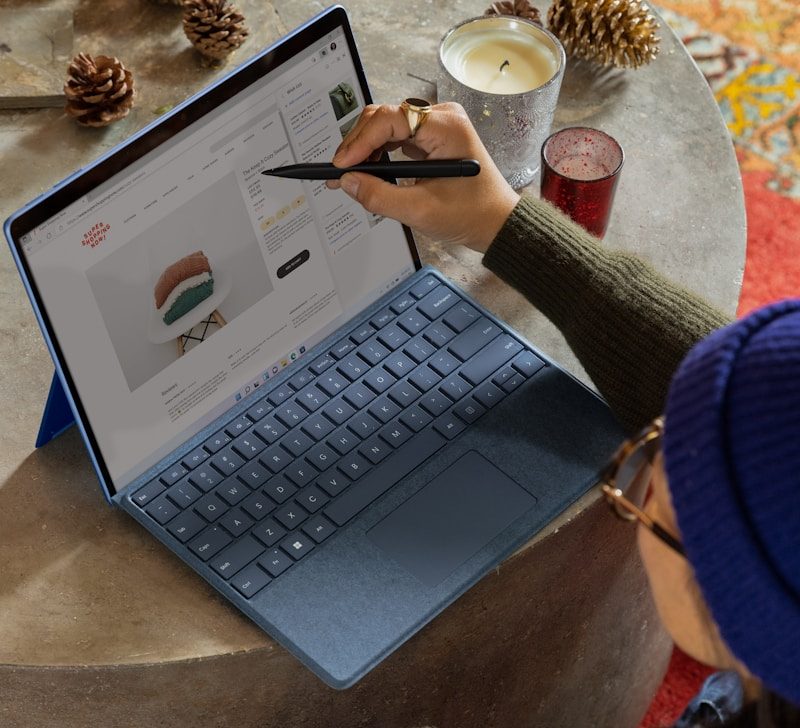Breaking Free from Launch Paralysis
I’ve seen this pattern repeatedly with my clients. They spend months (sometimes years) preparing for a “launch” that never happens because they’re waiting for everything to be perfect. Meanwhile, opportunities pass them by.
Omar shared a personal story that resonated with me. In 2021, he spent countless hours creating a photography masterclass, waiting until he hit 10,000 Instagram followers to release it. The result? Zero sales. Not because the content wasn’t valuable, but because he hadn’t built the offer with his audience.
This approach is backward. Instead of building in isolation, we should be building in public—letting people into the process and refining our offerings based on real feedback.
Here are three strategies that will help you break through perfectionism and finally get started:
- Lock in a date – Choose a specific day to begin, and stick to it no matter what. This creates accountability and forces you to take action.
- Focus on delivery, not perfection – Show up consistently for the people who show up for you. The fulfillment is what matters, not the polish.
- Do it for the data – Give yourself permission to be messy by viewing your early efforts as research. Every post, video, or offer provides valuable information about what works.
The Value Mindset Shift
One of the biggest obstacles I see with new entrepreneurs is undervaluing their expertise. We often think we need to do free work to prove ourselves, but this approach can backfire.
When people don’t pay, they often don’t pay attention. There’s a direct correlation between investment and commitment. As Omar put it, “When you pay, you pay attention.”
I’ve found that charging appropriately from the beginning sets the right expectations. Your early clients aren’t getting a “messy” product—they’re getting your accumulated expertise packaged in a format that will evolve over time.
Remember that people don’t buy what you sell; they buy what you say. Your ability to communicate value matters more than having every detail figured out.
Building While Flying
The beauty of the online space is that you can refine your offerings in real-time with your audience. Omar’s podcast, The Department, started with just a few recorded conversations—no fancy equipment, no perfect branding, just valuable content.
Now it’s a successful show, but they’ve tweaked countless elements along the way. The same camera and tripods remain, but the format, style, and approach have evolved based on audience feedback.
This “build while flying” approach allows you to:
- Test ideas with minimal investment
- Get real feedback from actual customers
- Improve based on data, not assumptions
- Create stronger connections with early supporters
I’ve applied this approach with my own coaching programs. When I started, I didn’t have pre-recorded videos or downloadable PDFs—just a clear understanding of the transformation I could help people achieve. As clients came in, I refined the program based on their needs and feedback.
The most successful entrepreneurs I know didn’t wait until everything was perfect. They started with what they had, learned from their mistakes, and improved over time.
So if you’re stuck in launch limbo, give yourself permission to begin. Pick a date, focus on delivery, and do it for the data. The clarity you seek will come through action, not preparation.
Frequently Asked Questions
Q: Isn’t it unprofessional to launch something before it’s fully polished?
Not at all. What might seem “unpolished” to you is actually your authentic starting point. Your early audience isn’t comparing you to your future self—they’re evaluating whether you can help them now. Remember, even major platforms like Instagram and YouTube started with basic features and evolved over time based on user feedback.
Q: How do I price my offer when I’m just starting out?
Price based on the value of the transformation you provide, not the time it takes or how long you’ve been in business. Start at a point where you feel confident but that also requires clients to have skin in the game. You can always adjust pricing as you gain more experience and refine your offer. The key is to charge enough that clients take the process seriously.
Q: What if no one buys my offer or watches my content when I first launch?
This is actually valuable data! If no one responds to your initial offer, you can adjust elements like the name, messaging, or price point. Low engagement doesn’t mean your idea is bad—it might just need refinement. Use these early attempts to gather information about what resonates with your audience, then iterate accordingly.
Q: How do I show the value of my offer without testimonials or previous results?
Focus on clearly communicating the transformation or outcome you can help people achieve. Be specific about the problems you solve and why you’re qualified to solve them. You can also offer a smaller “pilot” version of your program to a few clients at a reduced rate (but not free) to gather initial results and testimonials.
Q: How much content should I have ready before launching a podcast or YouTube channel?
Having 2-4 pieces of content ready is sufficient to get started. This gives you a small buffer but doesn’t keep you in preparation mode forever. The most important thing is establishing a consistent publishing schedule you can maintain. Remember, your early content won’t be your best work—and that’s perfectly normal. The goal is to start the learning process through real-world feedback.







